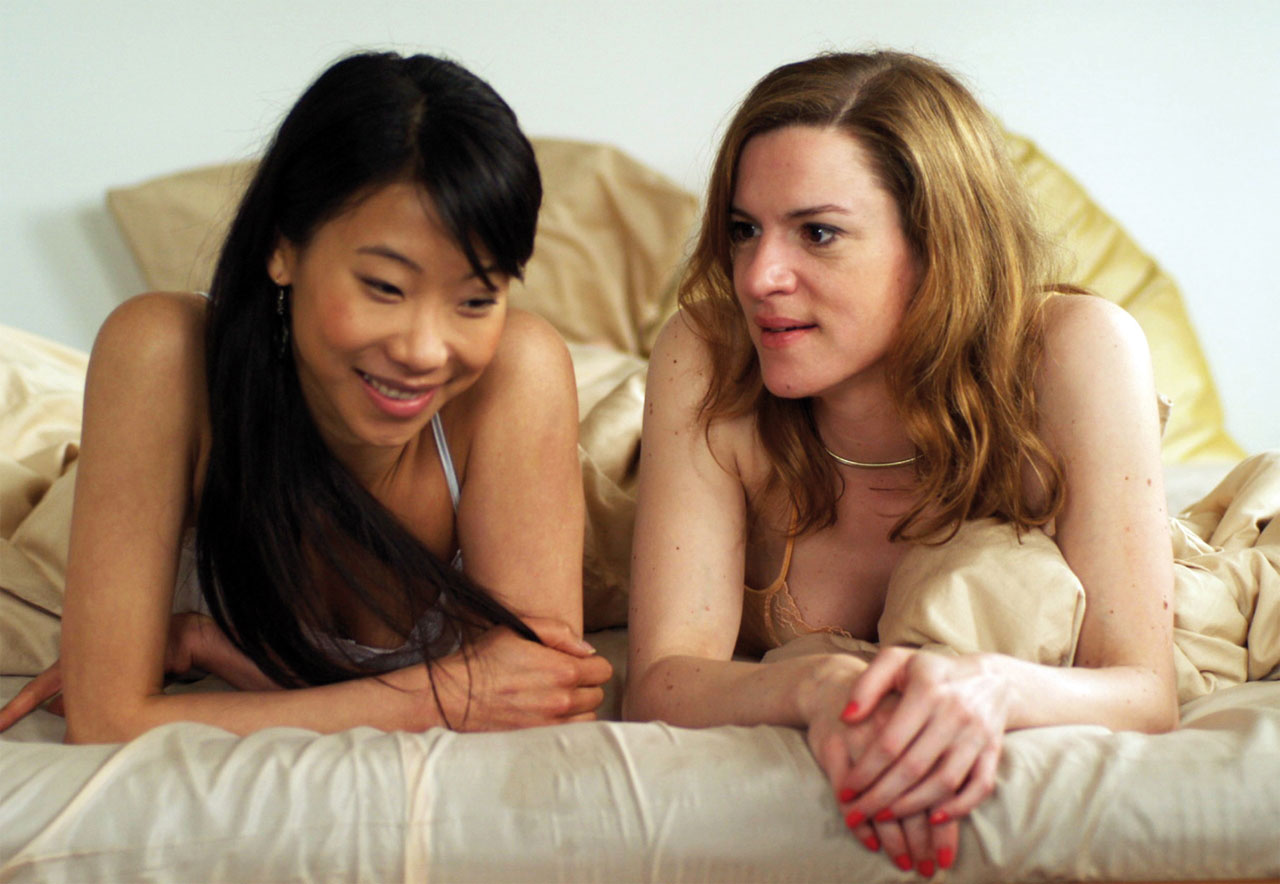Bound

Bound is a thriller with a lesbian twist, starring Jennifer Tilly (Bullets Over Broadway) and Gina Gershon (Showgirls) as illicit lovers who conspire to swindle the mob out of $2 million.
Depending on your proclivities, this may look like great fun, or it may sound deadly, like something you'd see on Cinemax in the middle of the night. But if Bound's pedigree isn't especially high -- the calling card of co-writers and directors Larry and Andy Wachowski is the screenplay to that Sylvester Stallone vehicle Assassins -- it's ambitious and clearly not stupid. An obvious precursor is Blood Simple, the debut from those other brothers, and the cast and crew of Bound do their level best to whip up an engaging entry in the sluggish neo-noir genre.
Coen Brothers or no Coen Brothers, I've never really been a fan of latter-day films noirs. The genre (or "series" or "style" or however you like to define it) prospered in a baffled and battered post-war America, and the movies themselves found cold truths by reflecting the national psyche in shadowy pools of cynical, unrelenting pessimism. The result of this -- a sort of confrontation between the audience and the darker half of its own nature -- was an end that justified the means. By contrast, contemporary filmmakers rarely seem as sincere as their ancestors, recreating this bleak worldview but playing it for kicks.
Maybe the thing that really drove those steely dramas was the stuff that had to transpire away from the watchful camera lens, if you get my drift. Great sex is a driving force behind noir, the gasoline in the engine that forces the male brain to careen off the guard rail, skid across two lanes of traffic, and finally tumble over the cliff. (If you don't believe me, rent a videotape of Joseph H. Lewis's Gun Crazy (1949), one of the sexiest movies ever made.)

So naturally I was waiting for Bound's big sex scene, curious whether Los Bros Wachowski could make me believe that Gina Gershon's ex-con Corky would exchange her dreams of rebuilding her life for the promise of an ecstatic fling with Jennifer Tilly's Violet. And it's a good sex scene, maybe the best I've seen all year (for what it's worth, alternative sex celebrity Susie Bright is billed as technical consultant). Gershon and Tilly had both been limited as characters, but I figured we'd be in for a heck of a treat watching their relationship develop as their double-cross got underway.
No such luck. In what looks to me like a dramatic miscalculation of this production's strengths, Corky is shunted away to the apartment next door just as soon as their scheme is implemented. The subject of the movie then shifts dramatically from the relationship between the two women to the relationship between gangster Caesar (Joe Pantoliano) and his breathy moll (Tilly). Of course, that's not the relationship I cared about.
The audience is asked to switch perspectives immediately, from Corky's to Violet's, and it's a move I just wasn't interested in making. So as Caesar freaked out over his missing money, fretted over visits from his gangster employers and sweated out an encounter with the cops, I was stretching my legs, squirming in my chair, and trying to make out the hands on my watch -- frankly, I was disappointed.
Part of the problem is the story, which isn't exactly formulaic, but doesn't hold any big surprises, either. Your reaction to the characters may hinge on your feelings about Tilly -- either you believe that she's smart as a whip and sexy as hell, or you find that her simple presence drives you up the wall. Gershon's not in the film's key scenes, so she's largely incidental. And Pantoliano is more than competent, but I was really hoping he'd run away so we wouldn't have to watch a lot of tedious squirming. (He doesn't; we do.)
And it's not that the movie is poorly made. Bang-up camera work from cinematographer Bill Pope (he shot both Army of Darkness and the terrific Clueless) helps the Wachowskis put their willfully obtuse spin on the picture, from the black-and-white-in-color pall that characterizes Caesar's apartment and the shrewd lighting that makes Tilly look like such a knockout to the self-consciously crazy camera set-ups and bloody tableaux.
Why do the Wachowskis resort to so much fancy footwork? Apparently just to prove that they can. The opening scene puts an overhead angle on a nearly unrecognizable closet; in one of Bound's self-congratulatory nods toward fashionably nonlinear storytelling, we find that Gershon is tied up on the floor and then backtrack for the bulk of the movie to find out how she got there. (It doesn't make narrative sense -- I guess it's just a way to visually underline the title.) In another shot, the camera seems to be strapped to Pantoliano's gut, and we get a chin's eye view of his trauma-wracked face as he staggers backward from a horrifying discovery. Such cinematic touches are the equivalent of exclamation points in prose -- we get the point, but we could do without all this clamorous insistence.
And it's all in the service of what? The movie never stops
inventing ways to top itself, but it's missing a point of view. Instead
of living these events through the eyes of a character, we're left to
watch the Wachowskis play with themselves. Somewhere, driving all this
action, there was supposed to be a really hot love story. For my own
part, I wish I had seen a little more of it. C-
Get Bound on Blu-ray from Amazon.com

